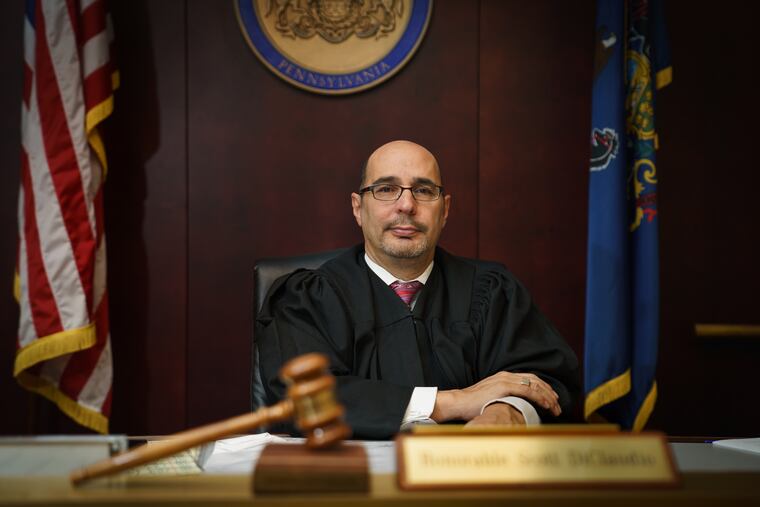Philly judge suspended over failure to pay health club and filing incomplete financial forms
Common Pleas Court Judge Scott DiClaudio has been suspended for two weeks and put on probation until 2026 for ethical violations.

Calling his behavior “egregious” and “unethical,” the state’s Court of Judicial Discipline has suspended Philadelphia Common Pleas Court Judge Scott DiClaudio without pay for repeatedly ignoring court orders to pay money he owed to a Montgomery County health club, and for failing to disclose on state financial forms nearly $300,000 in state and federal tax liens.
DiClaudio was suspended for two weeks without pay, placed on probation until his term expires in January 2026, and will be assigned a mentor, according to the court’s order, issued Tuesday.
A message left with a staff member at the judge’s chambers was not returned Thursday. DiClaudio was elected to the bench in November 2015 and was sworn in in January 2016.
His troubles began in 2015, when the Cynwyd Club, a private fitness and social club, sued him in magisterial district court in Montgomery County, saying he owed several thousands of dollars in unpaid membership dues, purchases, and services.
On Oct. 24, 2019, DiClaudio agreed to pay $9,500 to the club in two payments, according to a court filing.
On Dec. 20, 2019, the state’s Judicial Conduct Board determined that there was probable cause to file misconduct charges against DiClaudio, alleging that his actions violated the state constitution and code of judicial conduct, that he brought the judicial office into disrepute, and that he had failed to avoid the appearance of impropriety.
The judicial discipline court found him guilty of the charges on Dec. 1.
“Judge DiClaudio’s behavior was egregious enough for this court to find that he brought disrepute upon the judiciary,” the board’s order said.
DiClaudio’s punishment was based, in part, on the fact that six members of the eight-judge panel found that his misconduct involved multiple incidents over several years, and that some of it occurred when he was acting in his official capacity as a judge.
While the panel found that DiClaudio acknowledged his misdeeds, was contrite, and had not engaged in further misconduct while the case was pending, they determined that his misconduct brought disrepute upon the judiciary.
“Judge DiClaudio’s ethical violations are serious matters,” the order states. “Judge DiClaudio’s repeated improper conduct was clearly unethical. No one, let alone a jurist, should ever behave in such a manner.”
The Dec. 1, 2020, order in which DiClaudio was found guilty noted that he failed to report on his required annual statements of financial interest an outstanding 2017 federal tax lien for $287,500 and state tax liens dating to 2011 and totaling more than $26,000.